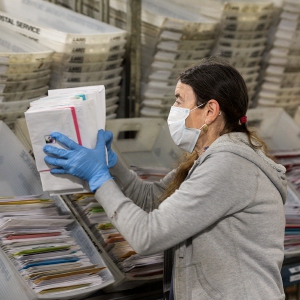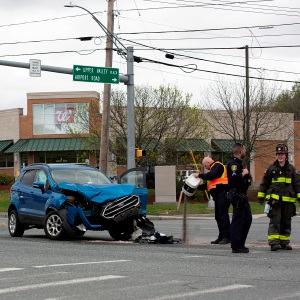Column: Drinking Age and Drinking Culture Are Relaxed in Chile
| Published: 11-12-2016 9:39 PM |
I am 18 years old, but when I order wine in South America, the waiter asks only one question: “Red or white?” If I bought alcohol in the United States, it would be a criminal offense.
In America I can legally vote, buy a gun, serve in the Army, and get married. I’m apparently mature enough to be executed by the state, but I’ll have to wait three more years before I can buy wine at the Co-op.
But right now I’m in Chile. In Chile I’m mature enough to drink alcohol. For the past two months I’ve traveled through South American countries where the drinking age is 18 or effectively nonexistent. The drinking culture here is quite different from that of the United States. Alcohol is enjoyed and savored, not chugged.
Article continues after...
Yesterday's Most Read Articles
 Homeless Upper Valley couple faces ‘a very tough situation’
Homeless Upper Valley couple faces ‘a very tough situation’
 Lebanon’s Jewell back from auto accident, more aware of ‘drowsy driving’ dangers
Lebanon’s Jewell back from auto accident, more aware of ‘drowsy driving’ dangers
 Plan on track to ship Upper Valley mail to Connecticut for sorting
Plan on track to ship Upper Valley mail to Connecticut for sorting
 West Lebanon crash
West Lebanon crash
 Crane crash on Interstate 89
Crane crash on Interstate 89
Nelson Bahamonde Santos, who lives in a small town in Chile, started drinking at home at about 14. He says young people drink, but he’s “never seen anyone go to the hospital for drinking.”
Alcohol is not inherently bad. But blackouts are bad. Alcohol poisoning is bad. Alcohol-related sexual assault is bad. These problems are associated with a culture in which young people have to drink in secret, and as a result often drink in excess and without oversight.
Barbara Will, an associate dean who has worked with Dartmouth to stem alcohol-related incidents at the college, says one of the factors in dangerous drinking habits is “a general societal expectation, reinforced by the popular media, that college is a time to party and that ‘partying’ is often positively equated with, and even championed, as drinking to a state of blackout.” When young Americans drink, they drink a lot.
The United States is one of only a handful of countries with a drinking age of 21. This is the highest minimum drinking age on the planet (excluding countries where alcohol is illegal for everyone). Yet America’s policy hardly prevents dangerous underage drinking. Thousands of young people die from alcohol poisoning each year. That number has grown at an alarming rate in recent years.
This danger is glaringly apparent at Dartmouth. According to a Dartmouth Student Wellness Center report, Safety and Security received 414 reports of alcohol-related incidents in the last year. A total of 176 students required medical care for alcohol-related problems in the same period. These are pretty striking figures for a college with just over 4,000 undergraduates.
As anyone who has visited a college campus (or been a teenager) can attest, the law rarely stops young people from drinking. College students still drink, they just have to hide it. Instead of drinking in a bar or restaurant, they drink in a fraternity basement or the woods.
The drinking age also affects youths’ drinking patterns. According to the National Institute of Health, 90 percent of the alcohol youths consume is by binge drinking. Will says, “(One of) the biggest contributors to problems like binge drinking on campus is the fact that drinking is illegal for anyone under 21, which leads to dangerous forms of pre-gaming.” Since it’s illegal for them to enjoy a beer at a football game, students drink vodka shots ahead of time. This is not healthy.
Many colleges agree. Presidents of 126 colleges have signed the Amethyst Initiative, a petition to lower the drinking age. The website says, “Twenty-one is not working.” It isn’t.
The minimum drinking age is a matter of state law, but in 1984 all 50 states raised the minimum age to 21 under threat of losing highway funding. President Reagan introduced this National Minimum Drinking Age Act in an attempt to curb deaths from drunk driving accidents.
The number of fatal car crashes involving intoxicated underage drivers did drop precipitously in the decade after the drinking age was raised. But we don’t know the counter-factual: In the same period, police cracked down on DUIs, cars got safer and states implemented seatbelt laws.
In New Hampshire, a few state representatives have proposed lowering the drinking age. In one proposed bill, young people would be allowed to consume beer and wine in the presence of someone over 21. So far, all \ bills have died in the House.
Of course, American drinking culture would have to change along with a lower drinking age. As an 18-year-old, I believe legalizing alcohol for college-age students would go a long way. Will says a lower drinking age would help on the Dartmouth campus by “de-stigmatizing and normalizing alcohol as a social lubricant to be used in moderation (if at all).” The forbidden fruit is often sweeter, particularly when it’s fermented.
Katrina Wheelan is a Hanover High graduate spending a gap year in South America.

 Editorial: Hartford is right to give banners due consideration
Editorial: Hartford is right to give banners due consideration Editorial: Response to campus protests only adds fuel to the fire
Editorial: Response to campus protests only adds fuel to the fire Editorial: Chris Sununu’s moral vacuum
Editorial: Chris Sununu’s moral vacuum Editorial: Gambling tarnishes America’s sporting life
Editorial: Gambling tarnishes America’s sporting life
